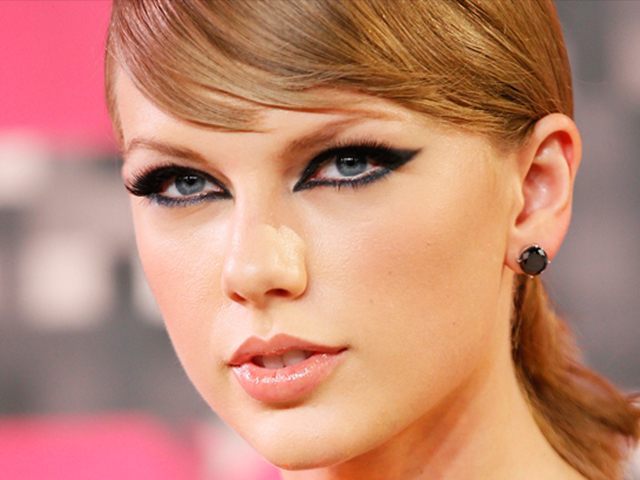Feminist cultural critic Camille Paglia has some advice for Taylor Swift’s #GirlSquad and the young Hollywood feminists: drop the male-bashing “gender factionalism that thrives on grievance” and instead focus on “mentoring, exchanging advice” and the “results-oriented teamwork” that men have used to help each other advance.
In an essay for The Hollywood Reporter, Paglia takes on the so-called “girl squad” phenomenon popularized by Taylor Swift, who has become known as much for her famous female celebrity “squad” as for her musical output.
Swift has been collecting female celebrity friends and showing them off like a stamp collection: Lena Dunham, Selena Gomez, Lorde, Kendall Jenner, Gigi Hadid, Lily Aldridge, Chloe Sevigny. The list is exhaustive.
Paglia writes that Swift “should retire that obnoxious Nazi Barbie routine of wheeling out friends and celebrities as performance props,” a practice the critic calls “exhibitionistic overkill.”
“In our wide-open modern era of independent careers, girl squads can help women advance if they avoid presenting a silly, regressive public image — as in the tittering, tongues-out mugging of Swift’s bear-hugging posse,” Paglia writes.
But #SquadGoals don’t have to be all bad, the cultural critic maintains.
“With gender issues like pay equity for women actors and writers coming increasingly to the fore, girl squads can be seen as a positive step toward expanding female power in Hollywood, where ownership has been overwhelmingly male since the silent film era,” Paglia explains.
However, Paglia notes that despite “its dictatorial over overcontrol,” the old Hollywood studio system “provided paternalistic protection and nurturance for young women under contract.” Lack of such protection today accounts in part for the rise of the “girl squad phenomenon,” Paglia reasons:
Young women performers are now at the mercy of a swarming, intrusive paparazzi culture, intensified by the hypersexualization of our flesh-baring fashions. The girl squad phenomenon has certainly been magnified by how isolated and exposed young women feel in negotiating the piranha shoals of the industry.
Returning to a theme she’s written about for years now, Paglia argues against the feminist tendency to demonize men, “whom feminist rhetoric too often rashly stereotypes as oafish pigs.”
“If many women feel lonely or overwhelmed these days, it’s not due to male malice,” she writes. “Women have lost the natural solidarity and companionship they enjoyed for thousands of years in the preindustrial agrarian world, where multiple generations chatted through the day as they shared chores, cooking and child care.”
Paglia believes girl squads can be positive development if they focus on helping each other, not on male-bashing.
“If women in Hollywood seek a broad audience, they must aim higher and transcend a narrow gender factionalism that thrives on grievance,” Paglia writes, adding:
Girl squads ought to be about mentoring, exchanging advice and experience and launching exciting and innovative joint projects. Women need to study the immensely productive dynamic of male bonding in history. With their results-oriented teamwork, men largely have escaped the sexual jealousy, emotionalism and spiteful turf wars that sometimes dog women.
She concludes that the so-called girl squads are “only an early learning stage of female development.”
“For women to leave a lasting mark on culture, they need to cut down on the socializing and focus like a laser on their own creative gifts,” she says.
Paglia is hardly the only one to take issue with Swift’s “girl squad” activity. Mic’s EJ Dickson calls the practice “totally disturbing,” while 14-year-old Girl Meets Word star Rowan Blanchard says it makes feminism look “one-dimensional.”
“Of course female friendship is a beautiful thing. It’s insanely powerful,” the teen actress told the website Just Jared this week. “Sisterhood is something so valid and important when you are growing up that I literally think the essence of it should be taught in schools. But, the ‘squads’ we see in the media are very polarizing. Feminism and friendship are supposed to be inclusive, and most of these ‘squads’ are strictly exclusive.”
Read Camille Paglia’s full essay in the Hollywood Reporter here.

COMMENTS
Please let us know if you're having issues with commenting.